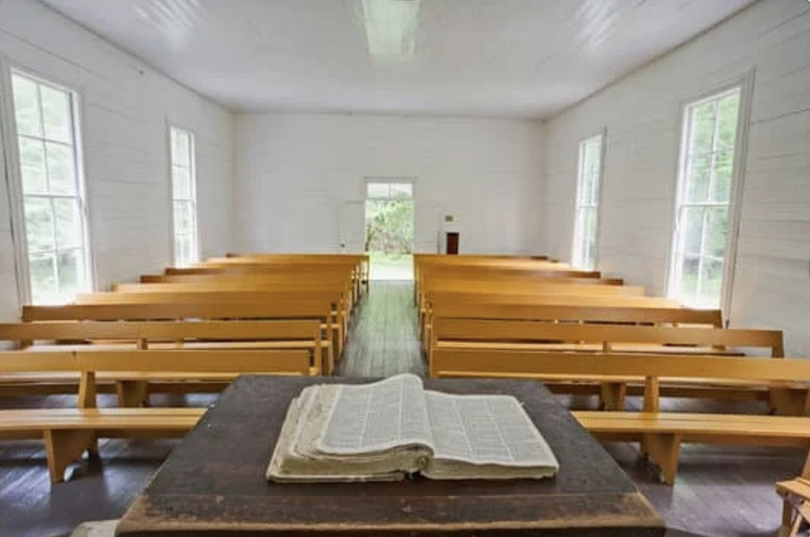Faced with the many challenges confronting the church in China today, Pastor Hong of a city church in eastern China has found that God has already prepared the best solution, one He designed.
God Has Already Designed the Best Solution
Over years of ministry, Pastor Hong has observed that no matter the issue, the ultimate answer is found in God. "When we return to the structure God designed for the church in Scripture, that is the best solution," he said.
Using the early church as an example, Pastor Hong explained his perspective. The environment faced by the early church—whether political, economic, cultural, social, ethnic, or class-related—was far more complex than that of the church today. In Paul's time, the church included Gentiles and slaves, as well as free people; Jews, Greeks, and Romans. It also endured brutal persecution from the Roman Empire and internal opposition from Judaism, while idolatry was widespread.
Yet despite such conditions, the early church's vitality and ability to grow were not diminished. "I see the operational structure and methods of the early church, as shown in Acts and the apostles' letters, as 'Jesus' method.' It can address all kinds of problems," Pastor Hong said.
During the pandemic, his church sent a family to plant a new church in another city. In just over two years, the congregation grew to more than 100 regular attendees, 80 to 90 percent of them young people. While many believe church planting is difficult in the current environment, Pastor Hong regards this church as living proof that God's best solution is already in place—we simply need to find it and follow it.
A Home Should Welcome the Church, Not Just Gatherings
Pastor Hong places great emphasis on applying biblical principles to practical ministry.
For example, he points to the principle of "the church meeting in homes." He believes that the family is built according to God's design and order, and every household that accepts Jesus Christ is a church family. Therefore, "the church meeting in homes" is something every Christian household should practice. The key, he says, is that a home should "welcome the church" rather than merely "host a gathering"—a distinction that matters.
"Hosting a gathering" is relatively simple—just providing a space, with little need for love, acceptance, or personal sacrifice. But to "welcome the church" means accepting brothers and sisters in Christ, making significant expressions of love, and serving others. This is not something for only a few families—every household in the church is to "welcome the church." This is the overall structure and communal practice of the church.
Why establish such "host homes"? Pastor Hong's answer is that they allow people to cross social and economic divides and bring everyone together.
The early church included starkly different groups—slaves and free people; the poor and the rich; Jews and Romans; Pharisees and scribes, tax collectors and prostitutes. Likewise, today, some live in multimillion-dollar homes, while others rent small apartments for just a few thousand yuan a month. Whether in a luxury villa or a modest rental, when the door is opened, it becomes the church. This practice enables believers to live out mutual love. Regardless of status, all become one family in Christ.
Opening one's home to the church brings people of different classes and educational backgrounds together, which can lead to challenges: How do we accept brothers and sisters who are so different from us? Pastor Hong answered, acceptance can be difficult, but through it comes learning, growth, and blessing. Often, we overestimate ourselves. Someone who has never opened their home might think they can live out every biblical truth, but that can be an illusion. Welcoming the church into one's home is the real test—and the real obedience.
What Kind of Church Has Strength?
"Imagine if a church had 100 families, all opening their homes to the church. That church would certainly be strong, and no environmental change could wipe it out," Pastor Hong said.
He believes that seemingly simple yet profoundly foundational methods—what he calls "Jesus' method"—can solve many large and complex problems. For him, the biggest challenge facing urban churches today lies in the family. Whether pastors view the church primarily as a collection of families or individuals leads to very different pastoral philosophies.
"This is a key issue in the church's foundational structure," he said. "From Scripture, we can see that all of God's community structures are based on the family as the basic unit."
Pastor Hong has served his current congregation for nearly five years, and more than 95 percent of its members are families. "When we look for answers in Scripture, the Holy Spirit naturally works, leading entire households to faith in Christ," he said.
Originally published by the Christian Times
- Edited and translated by Katherine Guo












